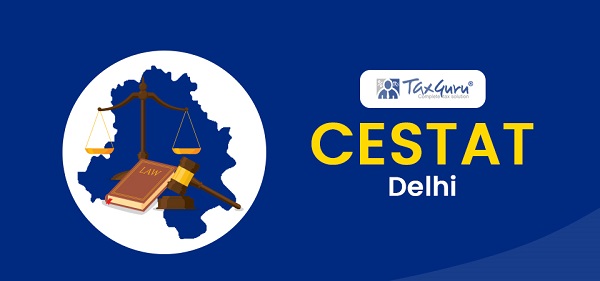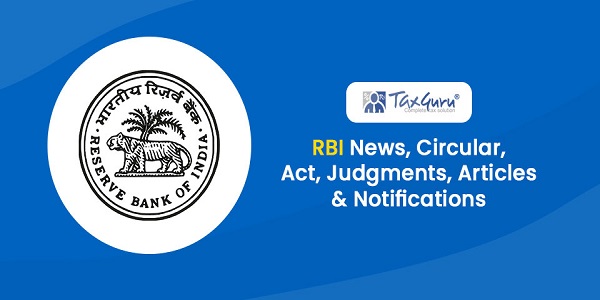Case Law Details
RELEVANT PARAGRAPH
20. It seems to us that the revenue functions in the same manner as other departments of administration, wherein the accepted norm is, to shift the responsibility of decision making to the judiciary. In sum and substance, the judiciary not only adjudicates upon legitimate controversies between quarreling parties, but also discharges the executive function of decision making. In furtherance of the intention expressed by this Court the revenue took two steps. Firstly, It moved civil miscellaneous application No.12383- CII-of 2009,so as to place on the record of this case an affidavit of the Commissioner of Income, Panchkula, dated 19.5.2009.And secondly, it engaged services of a senior counsel to represent the revenue in the instant appeal before this Court, so as to require this Court to discharge its executive function of decision making.
21.Before learned senior counsel commenced to address arguments, we invited his attention to the factual position noticed in the preceding paragraph. Learned senior counsel expressed his helplessness, he was professionally duty bound to canvass the appeal on behalf of the revenue. We granted him the liberty to raise submissions without any interference during the course of hearing, so as to enable him to discharge his professional responsibility. The few submissions raised by him have individually been dealt with in the succeeding paragraphs.
22. The first submission advanced by the learned counsel for the appellant-revenue was, that when the respondent-assessee i.e., the Haryana Warehousing Corporation filed its return of income ,it was clear to it that it was not entitled to exemption of its entire income. It was submitted, that the respondent-assessee was aware that income earned under heads other than rental income earned by it by letting godowns and warehouses for storage, processing or facilitating the marketing of commodities, was taxable. It was pointed out to us, that exemption under section 10(29)of the Act could be availed of only for purposes of income relating to its warehousing activity, and for no other income. It was therefore submitted, that the claim made by the respondent-assessee , even as per its note (extracted in paragraph 11 hereinabove) was not bona fide, and therefore, the initiation as well as imposition of penalty upon the respondent-assessee , under section 271(1)(c)of the Act, was not only valid but was also legitimate.
23. It is not possible for us to accept the first contention advanced by the learned counsel for the appellant-revenue. Undisputedly, in the judgment rendered by the Allahabad High Court in CIT v. U.P. State Warehousing Corporation, 195 ITR 273,it had been held that income besides rental from warehousing activity was also exempt from income tax under section 10(29)of the Act. A petition for Special Leave to Appeal preferred by the revenue against the aforesaid judgment had been dismissed by the Supreme Court on 9.4.1996 (for details refer to paragraph 5 above), whereas, the nil return under reference was filed on 31.12.1993.Although , the opinion expressed by the High Courts of Madhya Pradesh, Karnataka, and Rajasthan were to the contrary, yet at the time of filing of the return under reference, a petition for Special Leave to Appeal preferred by the Rajasthan Warehousing Corporation was pending consideration before the Supreme Court. On the same proposition of law the respondent-assessee had itself assailed the action of the respondent in respect of assessment years 1992-93 and 1993-1994 before the Supreme Court, and petition for Special Leave to Appeal preferred by the respondent-assessee for the assessment year 1992-93 had been granted, thereby, allowing the respondent-assessee leave to appeal, and for the assessment year 1993-94 was pending. Later on, the issue under reference arising out of the judgment rendered by the Gujarat High Court came to be referred to a larger Bench by the Supreme Court itself in CIT v. Gujarat Warehousing Corporation, (2000)245 ITR 1.It is, therefore, apparent that the legal position, which was subject matter of consideration was still in flux and had not attained finality. It would not therefore be correct to state that the filing of the return by the respondent-assessee in any way lacked bona fide. In view of the above, in our view, the first contention advanced on behalf of the appellant-revenue is wholly misconceived. We may also add herein, that the acceptance of the instant plea would lead to the inference, that an assessee who canvasses a claim on the basis of its (assessee’s) interpretation of the law, would be liable to penal action in case the revenue finds that the claim raised by the assessee is not acceptable. Such a determination would place curbs on the rights of an assessee, to raise claims it believes to be genuine, under the law. We are satisfied, that no such fetters can be placed on the rights of the assessee to raise genuine claims in its return. In the facts and circumstances disclosed hereinabove, we are satisfied, that the deduction claimed by the respondent-assessee was legitimate and bona fide, in terms of the conflicting determination of law on the proposition in question at the said juncture. We, therefore, find no merit in the first submission advanced by the learned counsel for the appellant-revenue.
24.The second contention advanced by the learned counsel for the appellant-revenue was, that the impugned order passed by the Income Tax Appellate Tribunal deleting the penalty imposed on the respondent-assessee under section 271(1)(c)of the Act, was not sustainable in law because of the clear judgment rendered by the Supreme Court in Union of India v. Dharamendra Textile Processors and others,306 ITR 277. According to the learned counsel for the appellant-revenue the entire income which remained undisclosed, “with or without ” any conscious act of the assessee, was liable to penal action. It is submitted by the learned counsel for the appellant-revenue, that the concept of law, with regard to levy of penalty has drastically changed in view of the said judgment, inasmuch as, now penalty can be levied even when an assessee claims deduction or exemption by disclosing the correct particulars of its income. According to the learned counsel, if an addition is made in quantum proceedings by the revenue- authorities, which addition attains finality, an assessee per se becomes liable for penal action under section 271(1)(c)of the Act. It is the vehement contention of the learned counsel for the appellant-revenue, that a penalty automatically became leviable against the respondent-assessee under section 271(1)(c)of the Act, after the finalisation of quantum proceedings.
In this behalf, it is also pointed out, that in view of the judgment of the Supreme Court referred to above, the dichotomy between penalty proceedings and assessment proceedings stands completely obliterated.
25. We have considered the second contention advanced by the learned counsel for the appellant revenue. To state the least, the instant submission is absolutely absurd. The parameters of imposition of penalty under section 271(1)(c)of the Act, have been incorporated in the provision itself. Section 271(1)(c)of the Act ,is being extracted hereunder:-
“Failure to furnish returns, comply with notices, concealment of income, etc.
271.(1)If the Assessing Officer or the Commissioner (Appeals)or the Commissioner in the course of any proceedings under this Act, is satisfied that any person- (a)to (b)xx xx (c )has concealed the particulars of his house or furnished inaccurate particulars of such income, or (d)xx xx he may direct that such person shall pay by way of penalty-(i)to (iii)xx xx Explanation 1-Where in respect of any facts material to the computation of the total income of any person under this Act (A)such person fails to offer an explanation or offers an explanation which is found by the Assessing Officer or the Commissioner (Appeals)or the Commissioner to be false, or (B)such person offers an explanation which he is not able to substantiate and fails to prove that such explanation is bona fide and that all the facts relating to the same and material to the computation of his total income have been disclosed by him, then, the amount added or disallowed in computing the total income of such person as a result thereof shall, for the purposes of clause (c)of this sub-section, be deemed to represent the income in respect of which particulars have been concealed. Explanation- 2 to 5-A xx xx “.
The essential pre-requisites section 271(1)(c)of the Act before a penalty can be imposed are; the assessee should have either “concealed the particulars of his income ” ,or alternatively the assessee should have “furnished inaccurate particulars ” of his income. Therefore, before determining the liability of the respondent-assessee in the present case, it would first have to be ascertained, whether or not, the respondent-assessee had “concealed the particulars of his income ” ,or had furnished “inaccurate particulars of his income ” .The clear and categorical finding at the hands of the Income Tax Appellate Tribunal in the impugned order dated 4.10.2007,was that the respondent-assessee had disclosed the entire facts without having concealed any income. There is no allegation against the respondent-assessee that it had furnished inaccurate particulars of its income. The aforesaid determination at the hands of the Income Tax Appellate Tribunal have not been controverted even in the grounds raised in the instant appeal. Additionally, in spite of our order dated 11.2.2009 (extracted in paragraph 18 above)the appellant revenue has not been able to controvert the aforesaid finding of fact. Concealment of particulars of income, or furnishing incorrect particulars of income, have in our view, been confused by the appellant-revenue, with, an unacceptable plea for exemption of tax-liability. Section 271(1)(c)of the Act can be invoked for imposing a penalty on an assessee, only if there is a “concealment of particulars of income ” or alternatively if an assessee furnishes “incorrect particulars of income ” .The respondent-assessee in the present controversy is guilty of neither of the above. Accordingly, we are satisfied that in the absence of the two pre-requisites postulated under section 271(1)(c)of the Act, it was not open to the appellant-revenue to inflict any penalty on the respondent- assessee.
29. In fact, to our mind all the five issues taken into consideration by the Income Tax Appellate Tribunal, while passing the impugned order dated 4.10.2007,were individually sufficient to accept the claim of the respondent-assessee . We are satisfied, that the instant appeal was not filed after due application of mind. Even after the passing of the order dated 11.2.2009 (extracted in paragraph 18 above),the appellant failed to examine the controversy in its correct perspective. Without any justification whatsoever, the appellant has pressed the instant appeal. As noticed hereinabove, we were convinced that the instant appeal was frivolous and ought not to have been filed. We had also made our intention clear that we would impose costs on the appellant if a reasonable cause was not shown. Pressing the instant appeal despite the expression of our verbal opinion also shows that the revenue shirked its responsibility of genuine decision making. We, for the present, refrain ourselves from imposing any costs on the appellant. This restraint is, because of our desire to awaken the revenue to its responsibility. Costs are generally imposed by Courts, not as a measure of punishment, but as a matter of misuse of jurisdiction. A similar situation in the future may prompt us to take the next undesired step of imposing costs. We entertain the hope that in the future, the responsibility of genuine decision making, will be taken seriously; not only for the purpose of avoiding frivolous litigation and/or wasting Court time, but also for, avoiding unnecessary expense and harassment to an innocent litigant. Had we issued notice in the instant appeal and thereby summoned the respondent, we would have had no re-course, but to compensate the respondent by awarding appropriate costs. Since however, notice had not been issued to the respondent-assessee in the instant appeal, we feel that our note of caution and vigil, at the time of filing appeals, will suffice for the present.




























